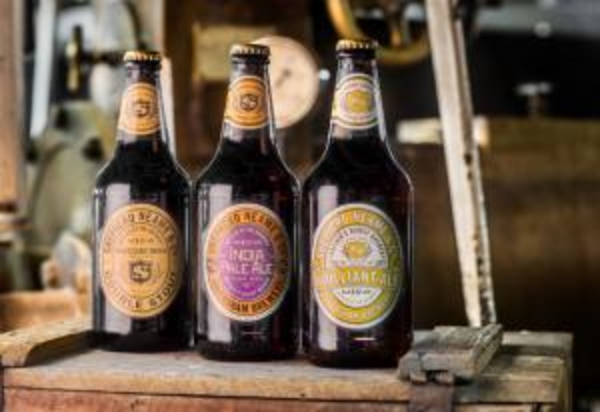Beer and the secrets in the cellar
Added: Saturday, August 9th 2014

Buried deep in the cellars of Britain’s oldest brewery, records of recipes from Victorian times stored in a dust-covered box were found to be written in a code that would baffle modern spy masters. The brewers’ books – large leather-bound tomes like those used by Ebenezer Scrooge in Dickens’ A Christmas Carol -- were discovered by John Owen, historian and company archivist at Shepherd Neame, a large family-owned brewery in southern England.
Shepherd Neame was founded in 1698 and it’s not surprising that some of its earliest records had gone missing. John Owen is the author of several books and pamphlets on the history of the company and he endlessly searches its highways and byways in search of ancient artefacts. His task is not made easy by the higgledy-piggledy nature of buildings that have been added, redesigned and refurbished over long periods. It was in one dark, dank and malodorous corner of the cellars that he discovered the ancient log books.
When Owen dusted off the cobwebs, he took the volumes to the more elegant and salubrious surroundings of a wood-panelled and book-lined room set aside for meetings and study. He sat down with brewer Stewart Main and they spent months of painstaking work breaking codes that were written with a series of letters, such as GBX, JBX and SBX. As a result the brewery has been able to recreate three beers – Brilliant Ale, India Pale Ale and Double Stout -- from the 19th century that shine a light on brewing practice at the time.
Shepherd Neame is based in the market town of Faversham and makes great use of local hops, the prized East Kent Golding in particular. The Neame family controls the brewery, which today produces upwards of 200,000 barrels of beer annually, and also owns 345 pubs based mainly in South-east England and London.
Its best-known ale is Spitfire, which commemorates the Battle of Britain fought in the skies above Kent during World War Two. The work carried out in the brewery’s archives recalls another crucial wartime activity – the cracking of the Nazis’ Enigma codes that shortened the war and saved many lives.
Why was it necessary for brewers to guard their recipes like state secrets? The answer lies in the ferocious competition that erupted in the 18th and 19th centuries as breweries fought to sell beer to pubs in their areas of production. In turn, the rush to market reflected the changing nature of Britain’s economic base.
*This is an extract from an article in the current edition of the American magazine All About Beer. for the full text go to:









